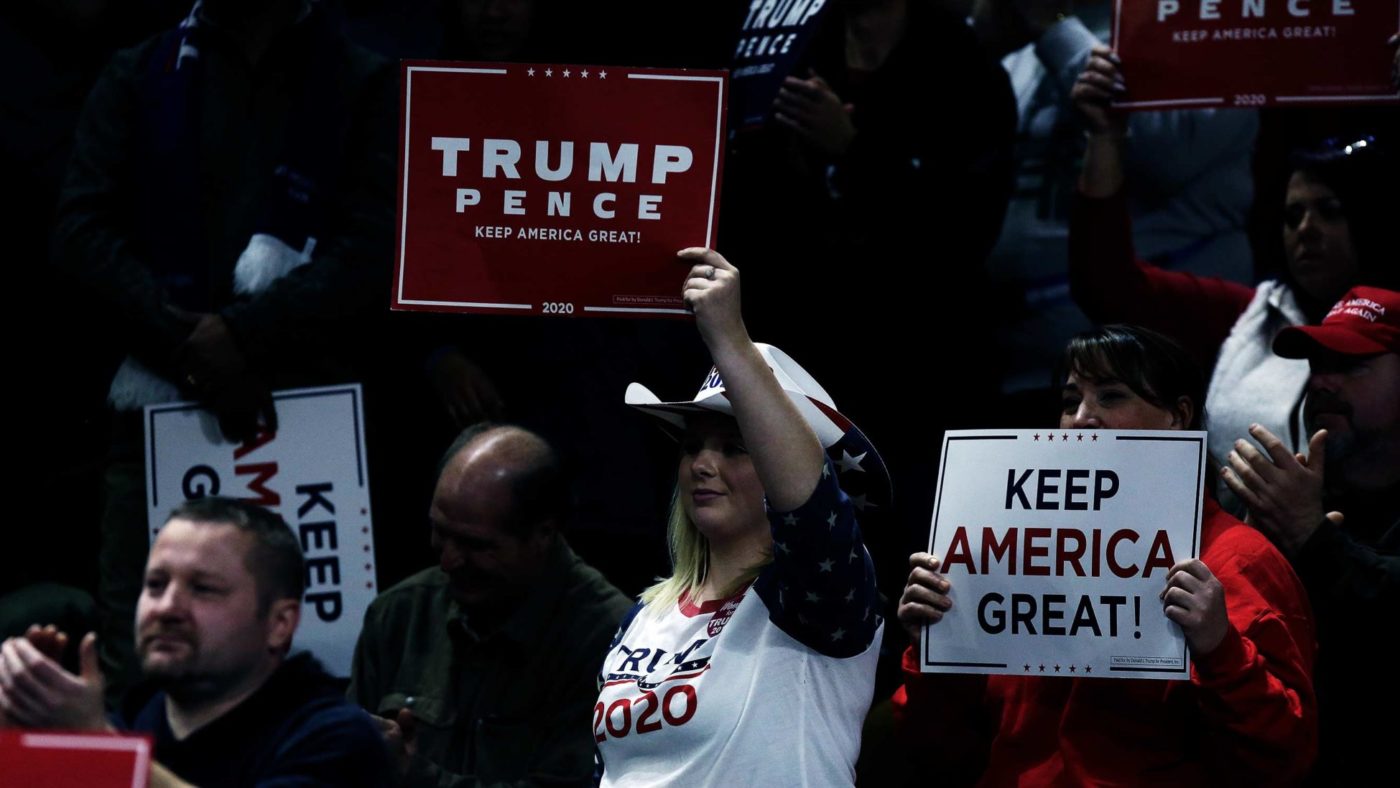In the three-and-a-half years since Donald Trump’s victory, the debate over the cause of that political earthquake has been distilled into one question: economics or culture? The slightly longer version goes something like this: Did Trump ride a wave of discontent from the ‘left-behind’ of recent economic history to the White House, or did he win by stirring up racial resentment and cultural divisions with a focus on issues like immigration and identity?
In academic circles and on the left in particular, the culture camp soon declared victory. As the headline on a late 2017 Vox survey of some of this scholarship put it: “The past year of research has made it very clear: Trump won because of racial resentment”. One study that year, for example, found that other than party affiliation, cultural anxiety — “feeling like a stranger in America, supporting the deportation of immigrants, and hesitating about educational investment” — was the best predictor of support for Trump.
But, as America limbers up for the contest to decide whether Trump will get four more years in the White House, the truth about 2016 remains elusive. Just when the culture theory was starting to look like conventional wisdom, research by two political scientists at Stanford University has delivered an interesting corrective.
In a new paper, Justin Grimmer and William Marble point out that “Donald Trump received fewer votes from whites with highest levels of racial resentment than Mitt Romney did in 2012”. While it is true that, of those white voters with high levels of racial resentment and bothered to vote were more likely to support Trump in 2016 than they were to support Romney in 2012, lower turnout and the fact that fewer whites had higher levels of racial resentment in 2016 than in 2012 mean “the higher rate of support for Trump was no enough to overcome the change in the distribution of attitudes and the change in turnout rates across elections”.
They find that “rather than voting blocs defined by racial attitudes” shifting the most to the 2016 underdog, Trump “increased his net vote total the most among independent, ideologically moderate, and lower socioeconomic status whites, both nationwide and in states decided by five percentage points or less”.
Their analysis of voting bloc shifts finds that the electoral pattern that enabled Trump’s victory “is not one based on high levels of racial resentment, the mobilisation of the Republican base, differentially securing former Obama voters, or the exclusive mobilisation of whites with restrictive immigration preferences. Rather, Trump improved over Romney’s electoral performance because he was able to make substantial improvements among low socioeconomic whites who are political independents, particularly in competitive states.”
None of this is a refutation of the idea that cultural anxieties played a big part in Trump’s win. Nor is it an endorsement of the ‘economic factors’ school of thought. What it does torpedo is the idea that Trump’s win should be characterised as the unleashing of American demons, an explosion of racially aggravated voting or the activation of a white supremacist voting bloc.
Trump the candidate and Trump the president are so without precedent that it’s no surprise so many search for equally extraordinary electoral explanation. But the complexion of the Trump electorate — and the issues animating those voters — is maybe the least remarkable things about the whole phenomenon.
Spend some time on the campaign trail and that much soon becomes clear. Attend Democratic presidential candidate’s events in early voting states like Iowa and New Hampshire, as I have, and it won’t be long until you come across a 2016 Trump voter looking for an alternative option.
Some of them have ruled out voting for Trump again, others are waiting to see who the Democrats will nominate. Overwhelmingly, members of both of those camps will tell you they are there in search of answers to the same problems and anxieties that led them to support Trump last time. Their account of the recent might drip with anti-politics sentiment, but Trump and his supporters are hardly alone in seeing things through this lens.
Those issues don’t fit into a single narrative. And they definitely cannot be sorted neatly into economic and cultural concerns. And nor should the way we think about Trump’s win in 2016, not least because Trump’s own account of American decline was both economic and cultural.
Trump will fight for re-election armed with a growing economy and warnings of a Democratic elite determined to ruin the ingredients of that success and dismantle everything that makes America great. As in 2016, it will be economics and culture. He will use his underrated political skills to weave these two strands into a compelling story. Like last time, this will be a story with a broad appeal that many of his opponents still refuse to acknowledge.
Click here to subscribe to our daily briefing – the best pieces from CapX and across the web.
CapX depends on the generosity of its readers. If you value what we do, please consider making a donation.


